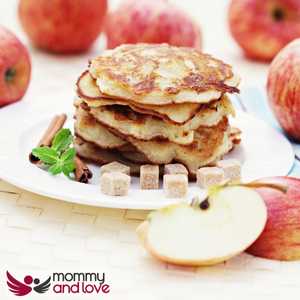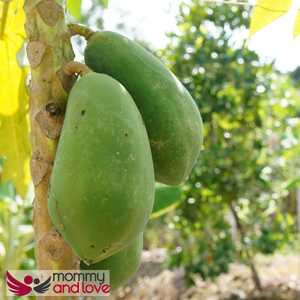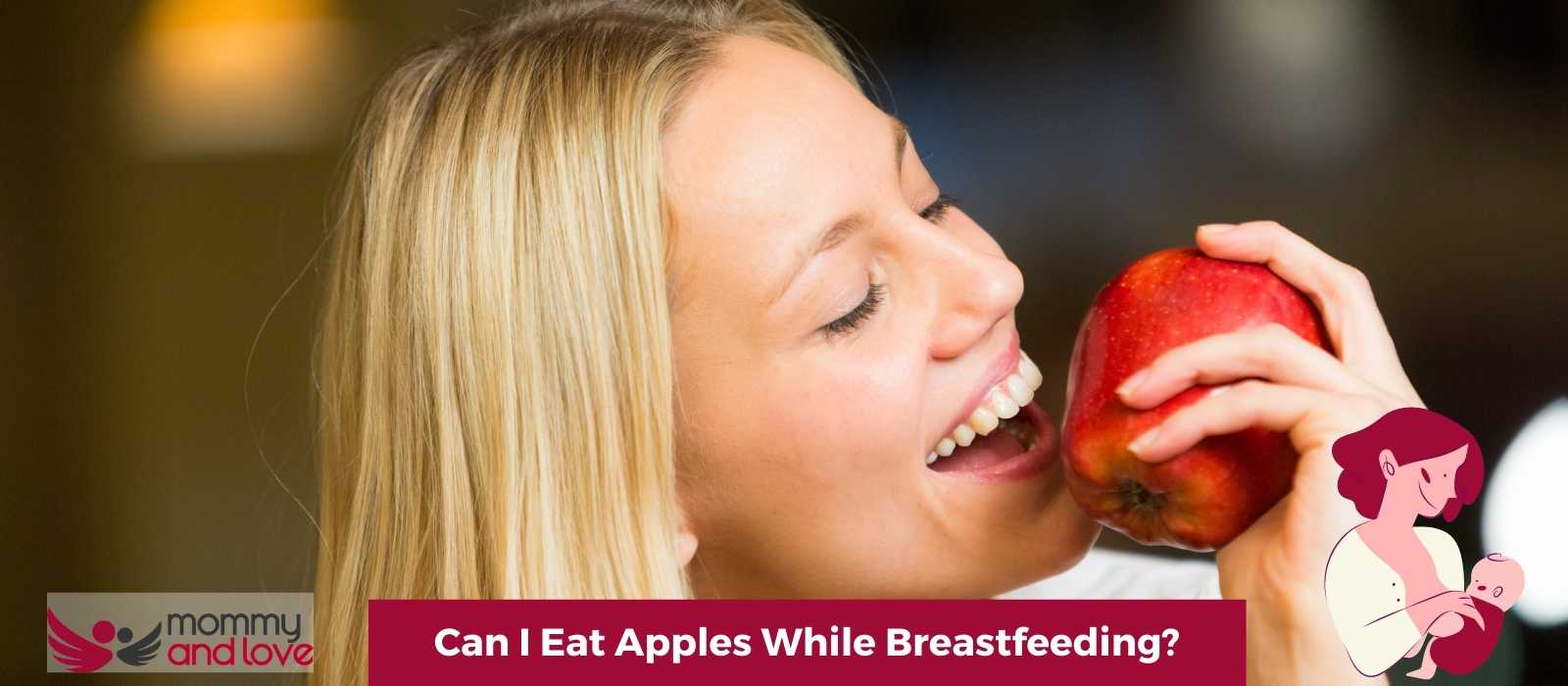When it comes to eating while breastfeeding, many mothers worry about what is safe and what is not. The good news is that most foods are safe to eat when you are breastfeeding. However, there are a few things that you should avoid.
In this blog post, we will discuss the safety of eating apples when breastfeeding. We will also provide some tips on how to incorporate apples into your diet safely.
What Are the Health Benefits of Eating Apples on a Breastfeeding Mom?
Apples are a great source of essential nutrients for healthy growth. They contain vitamin C which helps to boost immunity, helps the body to absorb iron more effectively and promotes tissue growth.
Apples are also a good source of dietary fiber, which can help to regulate digestion and keep you feeling full longer.
And last but not least, apples are a low-calorie food, which is important for nursing moms who are trying to watch their weight.
So if you’re looking for a nutritious snack that will help you reach your breastfeeding goals, reach for an apple!
How to Add Apples to Your Breastfeeding Diet

Apples are a healthy and nutritious food that can be easily added to your diet. They are good for your own health and well-being as well as your baby’s.
There are many benefits to eating apples while you’re breastfeeding, including helping to increase milk production.
Here are some tips on how to add apples to your breastfeeding diet:
- Apples are a great source of nutrients and antioxidants, which can help to boost your milk production.
- Add apples to your favorite recipes. Apples can be added to a variety of recipes, such as oatmeal, muffins, fruit salad and pancakes.
- Drink apple juice. Apple juice is a great way to get the benefits of apples without having to eat them. Just be sure to choose 100% pure apple juice with no added sugar.
- Make a healthy smoothie. Add apples to your favorite smoothie recipe for an extra boost of nutrition and can make for a delicious breakfast. You can also add other healthy ingredients, such as yogurt, bananas, and honey.
Following a healthy diet is important for all breastfeeding moms. By adding apples to your diet, you can help to ensure that you and your baby are getting the nutrients you need.
How Many Apples Can Breastfeeding Mothers Eat Each Day?
One to two apples is a good amount for breastfeeding moms to eat each day. Apples are a good source of both vitamin C and fiber. But other sources of these nutrients should be added to their diet.
New moms should have a well-balanced, varied diet consisting of fruits and vegetables to get the most benefit from their diet.
Can Apples Increase Breast Milk Supply?
The essential vitamins and minerals found in apples can help to have a healthy milk supply. Apples are also rich in calcium, which is essential for healthy milk production. If you are struggling to produce enough milk, try eating a few apples every day. You may be surprised by the results!
See a medical professional or a lactation specialist of you’re struggling with your supply or try some apple lactation cookies.
What Foods and Fruits to Eat While Breastfeeding?
As a new mom, you want to do everything you can to ensure a healthy breastmilk supply for your baby. But did you know that what you eat while breastfeeding can also impact your baby’s health?
Certain foods and nutrients are important for both you and your baby while breastfeeding. And it’s also important to expose your baby to different tastes so that the transition from breastmilk to solid foods will be easy. We’ve done a full guide to the best foods for new moms to eat and a guide to foods breastfeeding moms should avoid.
Here are some of the best foods and fruits to eat and to meet your nutritional needs:
Green Papaya

The unripe variety of the golden yellow papaya is rich in galactagogues and is considered one of the best fruits to eat. These are substances that help promote lactation.
When green papaya is paired with Greek yogurt, it makes excellent food for nursing moms. The yogurt provides protein and probiotics, while the green papaya provides vitamin C, as well as fiber.
This combination of green papaya and Greek yogurt helps to increase breastmilk production and also provides vital nutrients for both the nursing mother and baby.
Bananas
There are a few reasons why eating banana is considered healthy while breastfeeding.
First, bananas are some of the best fruits. They have high levels of potassium content and vitamin B6, which is essential minerals for both breastfeeding mother and child. Potassium helps to regulate blood pressure and fluid and electrolyte balance in the body. It also aids in muscle function and nervous system function.
Bananas are an excellent source of dietary fiber, which can help to prevent constipation for breastfeeding and pregnant women. They also increase your folic acid levels, which is important for the development of your baby’s nervous system.
Finally, if you eat banana, you might experience an increase in milk production. Bananas contain a special type of sugar called lactose, which has been shown to stimulate milk production in new moms who are exclusively breastfeeding.
However, bananas are high in carbohydrates so moms who are trying to lose weight should eat them in moderation.
Blueberries

The natural antioxidant properties of blueberries may help to protect the body from damage caused by free radicals.
Free radicals are unstable molecules that can cause cell damage and lead to various diseases. Antioxidants scavenge these unstable molecules and prevent them from causing damage.
Avocados
Avocados are some of the best fruits to eat. Eating avocados while breastfeeding is a healthy choice for both mother and child. They contain essential nutrients such as amino acids which are important for the development of the baby’s nervous system.
Avocados can help to stabilize blood sugar levels, which is important for both mother and child.
The healthy fats in avocados can help to lower cholesterol levels, which is beneficial for mothers and most babies.
Mango
Though not common household fruits, mangoes are a great source of vitamin K. Vitamin K is essential for blood clotting and bone health. Breastfeeding mothers need about 90 micrograms of vitamin K a day. A single mango provides about 40% of that amount. See our guide to breastfeeding moms eating mangos.
Apricots
The phytoestrogens in apricots can help to regulate milk-producing hormones in a nursing mother’s body, and may even help to increase lactation. Apricots are also a good source of fiber, which can help to regulate digestion and keep things moving along smoothly.
Dairy Products
Dairy products are rich in vitamin D, which is essential for the development of strong bones and teeth. Vitamin D also helps the body absorb calcium, which is important for healthy bones.
Some studies have shown that consuming dairy products while breastfeeding can help reduce the risk of developing certain diseases, such as osteoporosis and type II diabetes. Additionally, they can help to improve the quality of breast milk and increase the amount of fat that is burned by the body.
Whole Grains
Whole grains are a good source of fiber, which can help with adequate milk supply. They also contain vitamins and minerals that are important for both mom and baby.
Additionally, they provide energy and help keep blood sugar levels stable.
Breastfeeding moms need to be sure to eat enough of them to meet their increased energy needs and replenish calories.
Dark Leafy Greens
Dark leafy vegetables are especially beneficial, as they’re loaded with vitamins and minerals like calcium.
Consuming adequate amounts of calcium is important for both mom and baby during breastfeeding. For mom, it helps to maintain strong bones and teeth, while for baby, it aids in the development of strong bones and teeth.
What Foods and Fruits Should I Avoid While Breastfeeding?
Not all fruits and foods are created equal, meaning you need to avoid some of them if you want what’s best for your baby. Some of these affect how much milk you produce and can have a negative impact on the quality of your breastmilk.
Acidic Fruits
There are a few reasons to avoid acidic fruits while breastfeeding. First, the acidity can cause an upset stomach for both you and your baby. Second, the acidity can also lead to diaper rash. And finally, acidic fruits can contribute to tooth decay. So, if you’re looking to maintain a healthy breastfeeding relationship, it’s best to avoid acidic fruits.
Processed Foods
They are high in unhealthy fats, sugar, and salt. They also can contain harmful chemicals and toxins that can pass into your breast milk and potentially harm your baby.
They are also often lacking in important nutrients that both you and your baby need, like vitamins, minerals, and antioxidants.
High Mercury Fish
King mackerel, for example, is a fish that is high in mercury. And while it may be tempting to eat this fish while breastfeeding, it’s extremely important to avoid doing so. The reason is that the mercury can actually pass through the breast milk and into the baby’s system. And we all know how dangerous mercury can be. So it’s just not worth the risk.
Conclusion
So, can breastfeeding mothers eat apples? Yes! In fact, it’s considered healthy to do so. Apples are a great source of fiber and vitamin C, both of which are important for nursing mothers and their babies.
Breastfeeding is an important part of a woman’s life and it’s important to stay healthy and have a steady flow of vitamins and minerals during this time.
Enjoying an apple a day is a great way to keep your energy up and help meet the nutritional needs of both you and your little one. And remember to eat other nutrient-rich foods to round up your healthy choices.

This article was written by Sandra Baker – full time writer and the mother of four amazing kids (including twins!)
She’s also a breastfeeding counselor and has spent years helping new parents learn how to care for their children. When she’s not writing or caring for her children, Sandra likes to spend time reading and taking walks with her husband.




